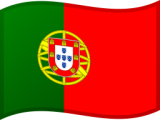 Status: Ratified 31 January 2018
Status: Ratified 31 January 2018
Portugal has a unicameral system, requiring the Assembleia de Republica to ratify CETA. CETA was ratified by the Assembly in September 2017 with formal notification of ratification in January 2018. Ratification was steered by a minority government led by the Socialist Party and backed by the Social Democratic Party and Popular Party.
Public debate
Contestation on CETA’s ratification was limited in Portugal. Opponent political parties, including the Communist Party, argued CETA would undermine sovereignty and empowered multinational corporations to the detriment of the state and society. Opposing CSOs argued that CETA lacked transparency and would erode environmental protections, labour rights and sustainable development targets through the implementation of the investor-state dispute settlement provisions. CSOs opposed to CETA include FENPROF, ANSOL, GAIA and Plataforma Não ao Tratado Transatlântico.
Trade data
Portugal had a trade surplus in goods trade with Canada of €172 million in 2021 (Eurostat). Imports from Canada were €180 million, 0.8% of Portugal’s imports from outside the EU . Exports to Canada were €352 million, 1.9% of Portugal’s extra-EU exports (Eurostat). Canada-Portugal bilateral goods trade (imports + exports) grew by €26 million, or 4.8%, between 2016 and 2019 (Statistics Canada).
Sources
Eschbach, A. The Ratification Process in EU Member States – A presentation with particular consideration of the TTIP and CETA free trade agreements. Institute for Comparative Public Law and International Law. Link.
European Public Service Union. (June 2016). “Unions and Civil Society are Mobilizing: No to CETA – a bad deal for workers and people.” Link.
Portuguese Communist Party Press Office. (September 2017). “On the ratification in Parliament of the CETA between the European Union and Canada.” Link.
Click here to return to CETA Tracker: Main Page
Click here for the Centre for European Studies, EU Learning.
Image: https://flagpedia.net